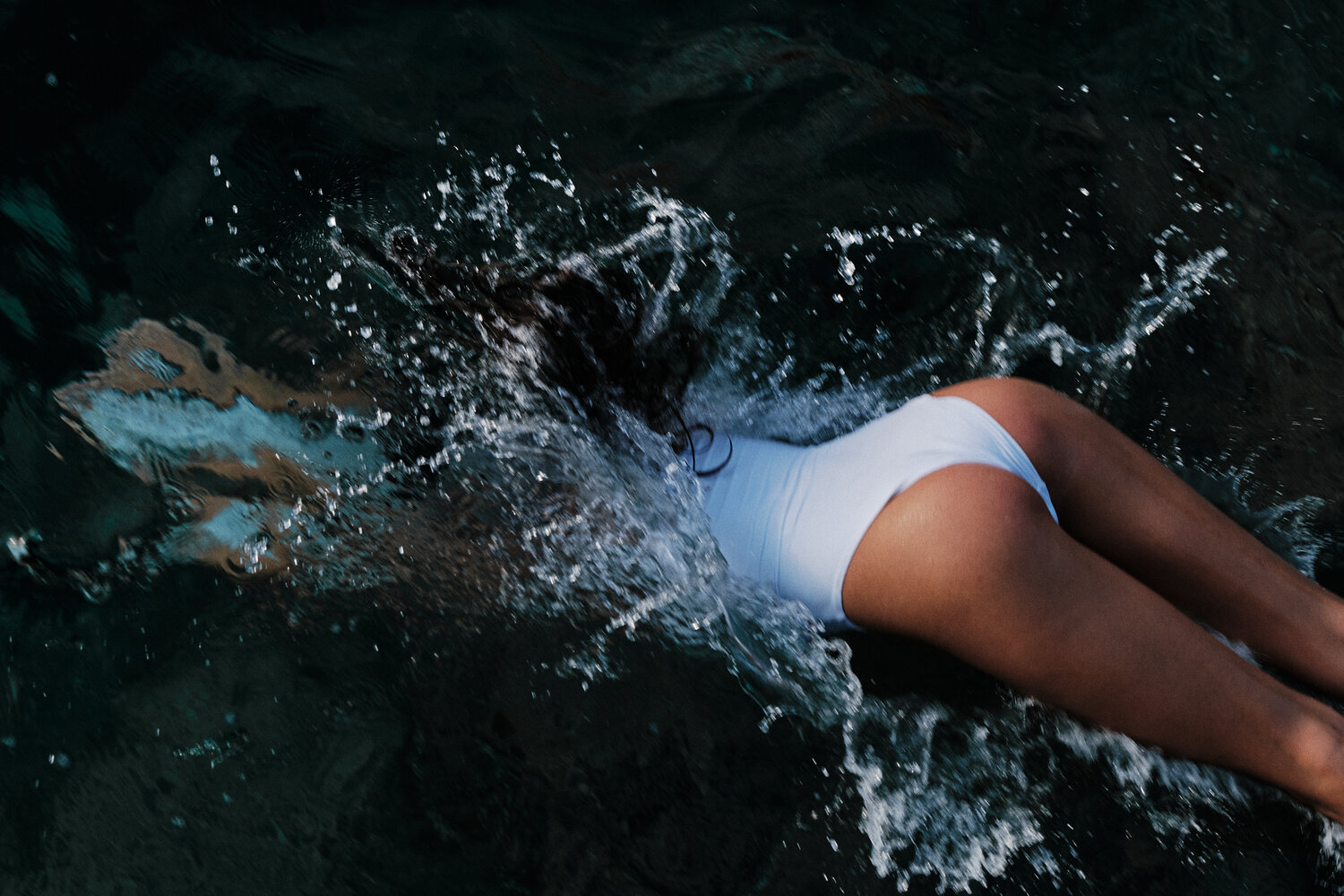Magazine Ashift: Interview with our founder, Fiona
This interview has already been published at Ashift Magazine, an online magazine about sustainable fashion.
“This month we had the pleasure to talk to Fiona the founder of the Spanish sustainable swimwear brand NAKĀWE. Over a ZOOM meeting Fiona invited us into her beautiful home to talk about the beginnings of NAKĀWE, her reasoning behind the sustainable approach of the brand, the impact of Covid-19 and her goals for the future”.

The model is wearing our Venus one piece in white color.
ASHIFT: When did you start NAKĀWE?
Fiona: It was two years ago and it was just something a little bit spontaneous. I wanted to see how women responded to those bikinis, because I have never done anything with bikinis before. This was the first time. I wanted to do something different. So, I did a really small collection and waited for people’s response. This is why this year I really started to take it seriously. I actually started out on Etsy! You should have seen my page on there. I was doing everything by myself. It was terrible (laughs).
ASHIFT: So, you launched your sustainable swimwear brand NAKĀWE quite recently and have already been hit with a worldwide pandemic. How has Covid-19 affected your small label?
Fiona: Well, it has its pros and cons. I still haven’t received all of my bikinis. My customers are therefore also waiting for half of it to finally arrive. Therefore, the pandemic makes it harder to get new customers. Things like that. But it has given me time to work on expanding myself on the internet such as doing my webpage. As I said I was selling on Etsy before. I was doing all the work by myself and I’m actually not that good at external communication at all. So, I hired someone, Marta! She’s my companion now and she is taking care of all of that and I can focus on my designs. I put more effort and money into NAKĀWE with the hope that it will grow. To me, it all feels very familiar and natural, because the brand’s photographer is my ex-husband, who is the father of our son. And our son as well, Jan, he is doing underwater photography. We are quite literally a big family here at NAKĀWE.
ASHIFT: What made you decide to produce your garments in the small town of Nuovo Friburgo?
Fiona: My husband is Brazilian. He is actually from a town very close to Nova Friburgo. So, I visited Nova Friburgo for the first time many years ago to visit his family and we usually all go there together. I saw the potential it had. There are small places where you can sow, produce, do little things. It’s a special place for sowing, one of the biggest places in Rio de Janeiro, especially for lingerie, bikinis and sportswear. So, I decided to go there. I was looking for places in Portugal and other countries at first, but the easiest option for me personally was Brazil. The textile brand I work with is actually Brazilian, too! I was searching for something biodegradable, more eco-friendly, that doesn’t have a negative impact on nature and found the perfect biodegradable fabric there.
ASHIFT: We are very slowly starting to become FABRIC GEEKS HERE AT ASHIFT. You use AMNI Soul Eco ® yarn from Rhodia ® the first nylon that is 6.6 biodegradable. Why did you choose this fabric and what makes it better than other fabrics?
Fiona: I live on a small island, Mallorca, and really love the nature and the sea. Since I was a little girl I have seen the island get worse and worse. We have a lot of tourism here which unfortunately creates a lot of trash. The fashion industry is one of the biggest polluters in the world, especially polyester and nylon, the fabrics that are commonly used for bikinis. I wanted to do something different and better and started searching for fabrics. There is a recycled polyester fabric made from PET bottles, which I was really interested in, but then I discovered the biodegradable nylon I am using right now. I was debating between the two, but the biodegradable option really convinced me, because it gets to decompose when you throw it away.
ASHIFT: From using plastic-free packaging to producing your swimwear garments ethically, what made you choose a sustainable approach when starting your own brand?
Fiona: Just the whole situation of the world; the climate change and everything else that is happening. I can’t be producing something that isn’t environmentally friendly. That just wouldn’t be working with me. For me it’s just out of question. If I have that option why wouldn’t I take it? When I first started I really looked into how bikinis are made. For example, I don’t use any closures or adjustable straps, because they’re all made from plastic. It’s just the little things that I think about. I still haven’t found an elastic that is biodegradable, so I am still on the search for the perfect products.
ASHIFT: We love how you show a lot of Behind The Scenes in your Instagram stories, from your personal design process to the production process in Nova Friburgo, Brazil. How important is transparency to you, especially on social media, while running a sustainable swimwear brand?
Fiona: Well, I think it’s very important for you to know where your clothes come from. Especially when a brand is saying things are biodegradable and ethically made. Then you have to show behind the scenes. We’re a small brand that is just starting out. I have a tiny studio. It’s not posh or anything like that. But it’s where everything starts with my daughter, my daughter in law and also my friends! I think that’s interesting to see for the customers. It’s also nice getting information back from the customers about what they would like to wear. And about Brazil, they’re my family, all the beautiful ladies there. I visit them as often as I can and see how they work. Everyone is just really familiar with each other. I think it’s nice to show that.
ASHIFT: What are your goals regarding transparency?
Fiona: There is just so much I want to show people. A lot of photographs and who our team is. The whole team in Brazil, but also the people here who work for NAKĀWE, like Marta, my son and my husband who help out when we go to Rio. I want to be as transparent as possible. For excample, I even show all the fabric brands I work with. I don’t see why I would keep any of that a secret. Honesty is really important for a sustainable business like mine. I mean I like to know, too, where and how the dress I am wearing right now was made. Who made it? Is it worth what I’m paying for it? That’s what we want to give to our customers, too, of course.
ASHIFT: What are your personal goals for NAKĀWE for the next few years?
Fiona: My goals for NAKĀWE or my personal goals? (laughs) Well, personally I have realized that I need a break from the city. I would love to go to Costa Rica or Brazil or the jungle for six months (laughs). Just to be more in tune with nature. It’s something that I have been wanting to do for a while but it’s difficult. I have children, a little girl and my son who also lives with me. Maybe we will try to go to Costa Rica for six months, come back here for the summer and expand NAKĀWE over there. We’ll see! I have to think about my kids first, but of course I want the best for my brand, too. From the perfect designs to the perfect quality.
Personally, I like a specific type of bikini, but of course, I am not all the other women. I want to go even further with that and offer a wider range of sizes in my new collection, too. I would like to include larger sizes. The goal is that everyone has a size that perfectly fits them, so that everyone is included. We will get there, slowly. On top of that I also really want to make a kids’ collection, maybe even a men’s collection but I haven’t found the perfect materials for that, yet. So a short term goal is creating the perfect next collection for 2021. We’ll have to see what options I have and how I can face everything, especially since we are still in a global pandemic.
ASHIFT: What have been the biggest challenges in general for you lately?
Fiona: I really hope the current situation with the pandemic will get better soon, because that has really affected me and my sewers. Brazil currently has one of the highest numbers and deaths, unfortunately. The studio in Nova Friburgo has been closed since March. Every sewer got a machine brought to their homes, though, so they can work from there and things are arriving here this week. I haven’t produced as much as I wanted to. It’s actually been much less. I just really don’t want to stop working with the sewers in Brazil. I love their work and the way we work together. So, I really hope their situation gets better soon. I’m looking forward to next summer, though, and my new designs.
I also have leftovers and don’t know what I will do with that. So, buying new fabric while still having fabric left is tricky. I really have to think about what I will do with the leftovers. That’s why I was thinking of making a kids’ collection with them. I know things will get better so in the meantime I’m just trying to slowly grow. Other than that, getting started and getting recognized here in Spain is difficult. Most of my sellings are made internationally. People here don’t really like to spend much and are probably thinking “That much for a bikini?”. There are just cheaper options from bigger brands and that’s all people see.
ASHIFT: On your website you explain how you are a strong believer and supporter of slow fashion. What are your hopes for the future of the fashion industry?
Fiona: Well, there are some things we can’t change and that’s the big brands producing massive amounts of clothes that end up being thrown away. I just think it’s about educating people slowly, showing people that there is another way of living and consuming. I try to teach my daughter, who is seven, about how we have to be more mindful and conscious about what we are consuming. We have to give this education to future generations. Right now, people don’t have the information how damaging nylon is. We don’t need that many things and recycling, of course, is really good. There are a lot of people who look for slow fashion and there are a lot of people who don’t. We’re just here to give people another option, a transparent and better alternative. They can then decide if that’s something that is interesting to them. We have more options than ever before. It’s important to keep in mind that not everyone can afford this right now, but hopefully high quality items that are long lasting will be the new normal one day.
ASHIFT: If we had to choose one sustainable bikini set or a one piece from your current collection which one would you tell us to get for our staycation?
Fiona: I have designed all the bikinis depending on your body type and different preferences. I think choosing the perfect bikini for yourself is really personal. It all depends on the woman who is wearing it. I think all of my bikinis are very pretty and look wonderful on all body types. I don’t think I could simply pick one. Everyone’s preferences are different. What do you like more? Do you like to show more skin or maybe not? What do you want to use it for? Do you want to run and move a lot on the beach or do you want to surf? It depends, but there is a bikini for everyone.
A huge thank you to Sophia and Mona from Ashift Magazine for taking the time to have this inspiring conversation about Fiona and her sustainable swimwear brand. Make sure to visit ASHIFT MAGAZINE to read its interviews and articles about sustainable brands.

